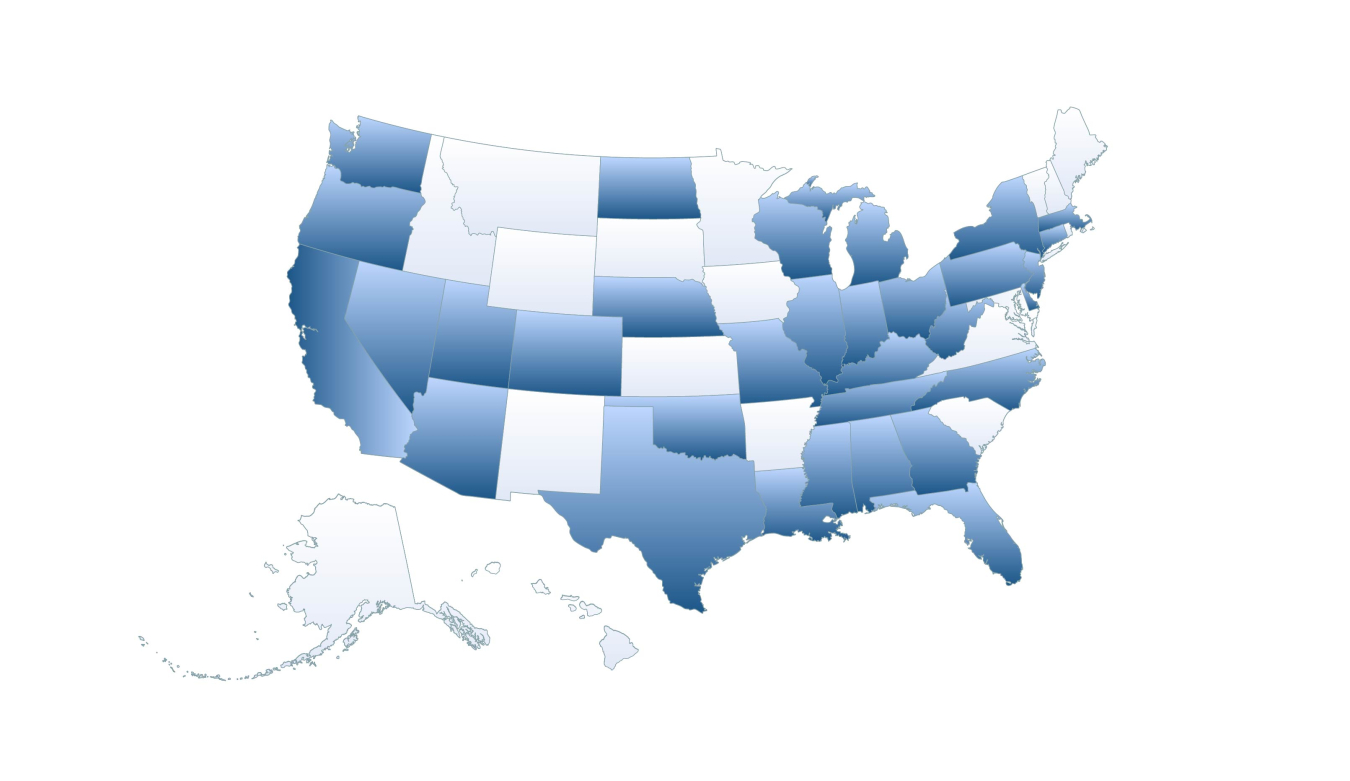In 2022, the Department of Energy (DOE) opened the Office of Manufacturing and Energy Supply Chains (MESC) under the Office of the Under Secretary for Infrastructure with funding from the Bipartisan Infrastructure Law. Since then, MESC has quickly emerged as a key player in accelerating America’s transition to clean energy. With a commitment of over $20 billion in direct investments, MESC is catalyzing transformative manufacturing capacity upgrades and targeted workforce investments. By promoting innovation across U.S. manufacturing and energy supply chains, MESC is investing in America’s energy future.
Core Functions and Strategic Approach
MESC’s mission is to deliver the “how” of the energy transition quickly, securely, and equitably. The office operates as the frontline of clean energy capital deployment, with core functions in three key investment areas:
- Investing in Manufacturing: MESC works to strengthen and secure the supply chains required to reindustrialize the country’s energy infrastructure, while supporting a clean and equitable energy transition.
- Investing in Workforce: The office provides direct investment in workforce education and training through cutting-edge energy manufacturing programs.
- Modeling and Analytics: MESC invests in extensive modeling and analytics to inform investments, program implementation, and efforts across the federal government to strengthen critical manufacturing and energy supply chains.
MESC strategic investment in critical materials, workforce, and essential manufacturing empowers DOE’s other major project offices such as Office of Clean Energy Demonstrations and Grid Deployment Office through de-risking the supply chains for transmission, hydrogen, carbon capture, and other emerging clean technology projects.
Strategic Financing Programs:
MESC employs a variety of financing programs to achieve its mission, including the Bipartisan Infrastructure Law, the Inflation Reduction Act, the Defense Production Act and the Qualifying Advanced Energy Project Credit (also known as Sec. 48C).
- Bipartisan Infrastructure Law: MESC uses Bipartisan Infrastructure Law funds to invest in domestic batteries and critical materials infrastructure, as well as supporting the small-and medium-sized manufacturing enterprises to training the clean energy workforce of the future and reduce the energy costs and emissions footprint.
- Inflation Reduction Act: Through Inflation Reduction Act funding, MESC manages programs to accelerate electric heat pump manufacturing and support the transition to electric vehicles, investing in existing plants and rehiring existing workers.
- Defense Production Act: The DOE uses the Defense Production Act to increase domestic production of five key clean energy technologies, including electric heat pumps. MESC manages the efforts to accelerate electric heat pump manufacturing in the U.S.
- Qualifying Advanced Energy Project Credit (Sec. 48C): Sec. 48C is the largest investment tax credit for energy manufacturing and energy efficiency in manufacturing history and includes a specific focus on revitalizing coal communities. The program aims to create high-quality jobs, decrease industrial emissions, and increase domestic production of critical clean energy products and materials recycling.
Ongoing and Planned Investments:
As of now, several funding opportunities are underway, and new funding opportunities are announced regularly. Several ongoing funding opportunities include:
- Qualifying Advanced Energy Project Credit Program (48C): Sec. 48C provides a tax credit of up to 30% of the capital cost of advanced energy projects in three categories: (1) Clean energy manufacturing and recycling, (2) Greenhouse gas emission reduction in industrial facilities, and (3) Critical materials refining, processing, and recycling.
- Industrial Research and Assessment Center Implementation Grants: These grants are designed to fund upgrades for small- and-medium sized manufacturers outlined in Industrial Assessment Center assessments. Designed to provide up to $400 million in funding for recommended upgrades, grant applications are accepted on a rolling basis and reviewed quarterly.
- Domestic Manufacturing Conversion Grants: This program seeks to accelerate the growth of domestic production capability of electric vehicles and components. Eligible projects should address conversion of manufacturing facilities to expand domestic production capability of electric vehicles, components, and materials.
- Battery Materials Processing and Battery Manufacturing Grants: This program aims to reach across both the midstream and downstream segments of the battery supply chain, supporting both midstream battery materials and component manufacturing, as well as subsequent cell manufacturing and end of life recycling.
- Advanced Energy Manufacturing and Recycling Grant Program: This program will award financial assistance to small- and medium-sized manufacturers in energy communities to 1) establish new facilities or 2) re-equip or expand existing facilities for the manufacturing or recycling of advanced energy property.
- State Manufacturing Leadership Program: Small- and medium-sized manufacturing firms can leverage this program to connect broadly with resources for utilizing smart manufacturing technologies in facilities, using States as critical partners for providing technical assistance.
Achievements and Impact:
Since the office’s creation, MESC has already created a lasting impact on our nation’s energy independence. MESC has invested over $5 billion into the private sector, directly supporting energy manufacturing, while keeping 33% of total investments towards energy justice communities. MESC has also reached milestones in workforce investments, creating over 10,000 jobs and training over 720 students annually. MESC’s focus on innovation is enabling 1.3M electric vehicles annually and facilitated the adoption of 300,000 residential heat pumps. Learn more about MESC’s impact here.
A comprehensive map showcases MESC’s project portfolio, highlighting the states where investments are driving significant advancements in batteries and critical materials, industrial assessment centers, and centers of excellence.

Stay Up to Date:
To connect with MESC and keep up to date on the office’s latest news, events, and funding opportunities sign up for email updates, get in touch with the team, and connect with MESC on LinkedIn and Youtube.
_____
On February 1, 2024, CEBN held a webinar featuring guest speakers from MESC and the Energy Communities IWG, covering programs like the Industrial Assessment Centers and the 48C tax credit. View the recording here.
Want to know more about BIL? Explore additional entries to the Breaking Down the Bipartisan Infrastructure Law series to discover programs funded through this $1.2T investment. CEBN’s cleantech funding database includes even more opportunities.
